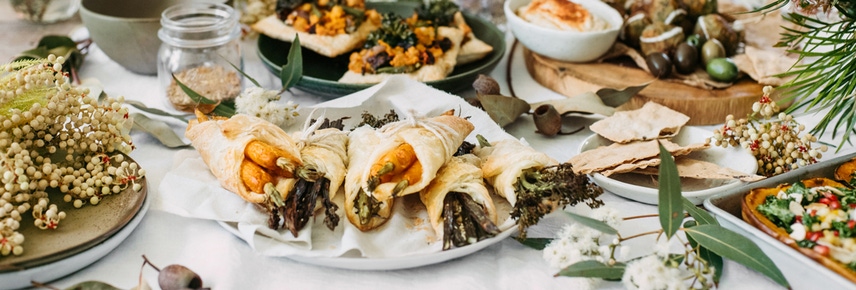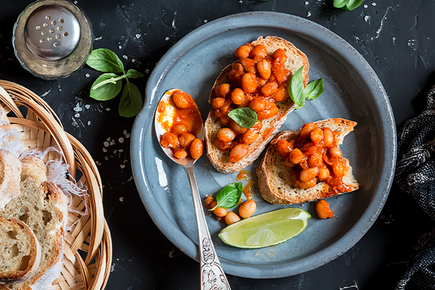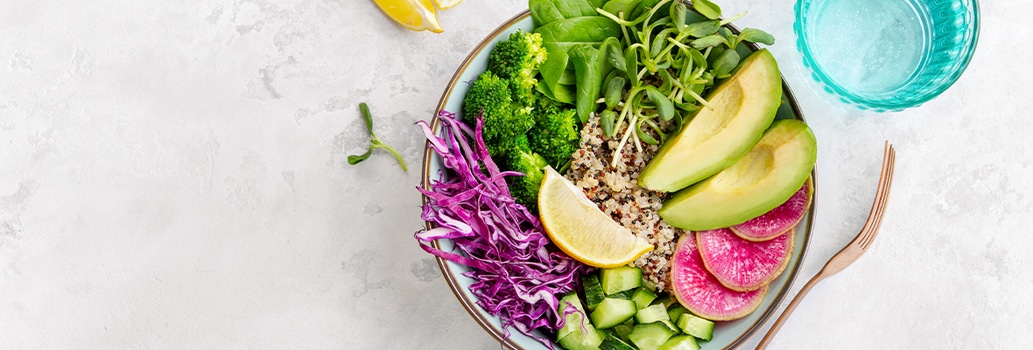
Gut health challenge
Have you heard of people counting plants, instead of calories? Popping an extra veggie into the dinner mix to make it to 30? And why 30?
It’s all a part of the 30 Plants in 7 Days Challenge – finally a diet trend we can get behind 100%.
The aim of the challenge is to improve your gut health by eating a wider variety of plant foods. The 30-plants-a-week challenge first hit the headlines a year ago, and since then it has rocketed in popularity.
The challenge is based on one of the largest international gut health studies, which found eating 30 different plant-based foods a week could help support your gut health.
The study involved testing stool samples (💩) from people around the world, including the US, UK and Australia. Researchers were surprised to find people who ate 30 or more different plant-based foods a week, had much greater diversity when it came to their gut bacteria than those who had eaten 10 or less plant foods a week, and that’s a very good thing!
This study is not alone, over the years there’s been increasing interest in researching gut health, and overwhelmingly the evidence shows eating a wide variety of plant foods is essential.
Diversity is key for good gut health. The microbes in our guts – the trillions of microorganisms that help you digest, absorb and use the nutrients in food – thrive on a varied, mostly plant-based diet.
So, you may already be vegetarian or hitting your ‘5 serves a day’ target, but the real gut health magic happens when you mix it up.
The 30 Plants in 7 Days Challenge is about helping people to do just that. We’re creatures of habit and we sometimes need a little nudge along to try a new veggie, or to go beyond the same salad combo for lunch.
While fitting 30 plant-based foods into your diet each week might sound like a lot, it’s much more simple than you might think.
So, what counts? All your fruits, vegetables, legumes (beans and peas), nuts and seeds, wholegrains, herbs and spices – anything derived from plants.
In a week that may look like:
Veggies – Avocado, broccoli, tinned tomatoes, potato, onion, frozen peas (or more points with a frozen veggies mix), carrot, cucumber, lettuce. That’s nine!
Fruit – Grapes, strawberries, watermelon, frozen blueberries, apple, banana, orange, kiwi. Now we’re at 17.
Wholegrains – Wholegrain cereal, brown rice, quinoa, wholegrain pasta, grainy bread, wholegrain crackers. Another 6 – up to 23 if you are counting.
Legumes, nuts and seeds – Chickpeas, baked beans (or bonus points for three bean mix), pumpkin seeds, peanut butter, and almonds. Already at 28.
Herbs and spices – Basil and coriander. That’s 30!
So, with a little bit of thought and minimal effort, you’ll be hitting 30 a week easily.
Sanitarium Accredited Practising Dietitian Tayla Daniel said hitting your 30 plant-based foods every seven days can be a lot simpler than you think.
“As well as fresh plant foods, it’s really handy to have bags of frozen peas, corn or mixed veggies on hand to add to meals, or even frozen fruit like mixed berries or mango to pop into smoothies. Because they’re snap-frozen, they retain their nutrients,” she said.
“Another budget buster is canned veggies, like tinned tomatoes, three bean mix, and chickpeas. All handy staples to have in the pantry which will help you hit 30.
“While you may not eat big portions of all these delicious plant foods, it’s the mix of nutrients and fibres that helps feed different gut bacteria.”
Tayla said a healthy gut has wide ranging benefits for your overall health.
“Increasing the diversity and number of bacteria makes your gut healthier. When we feed our gut bacteria food that helps them thrive, such as fibre-rich plant-foods, they produce compounds known as short-chain fatty acids. As well as looking after your gut, short-chain-fatty-acids help our bodies absorb certain nutrients, train our immune system and help with important cycles in the body,” she said.
“A healthy gut also reduces inflammation and even lowers the risk of chronic disease, such as type 2 diabetes, cardiovascular disease and some cancers.”
In recent years, we’ve discovered just how important a healthy gut is for mood and mental health.
“Our gut and brain talk to each other, they’re connected,” said Tayla.
“You may have had butterflies or felt something in your gut. There’s an emotional connection and science is revealing it’s bigger than we ever thought. They’ve even named the connection – the gut-brain-axis.
“Scientific research has found connections between the gut and depression, brain function, and mood. It is still early days, and while we now know the gut impacts the brain, we are still unravelling just how and why.”
It’s all a part of the 30 Plants in 7 Days Challenge – finally a diet trend we can get behind 100%.
The aim of the challenge is to improve your gut health by eating a wider variety of plant foods. The 30-plants-a-week challenge first hit the headlines a year ago, and since then it has rocketed in popularity.
The challenge is based on one of the largest international gut health studies, which found eating 30 different plant-based foods a week could help support your gut health.
The study involved testing stool samples (💩) from people around the world, including the US, UK and Australia. Researchers were surprised to find people who ate 30 or more different plant-based foods a week, had much greater diversity when it came to their gut bacteria than those who had eaten 10 or less plant foods a week, and that’s a very good thing!
This study is not alone, over the years there’s been increasing interest in researching gut health, and overwhelmingly the evidence shows eating a wide variety of plant foods is essential.
Diversity is key for good gut health. The microbes in our guts – the trillions of microorganisms that help you digest, absorb and use the nutrients in food – thrive on a varied, mostly plant-based diet.
So, you may already be vegetarian or hitting your ‘5 serves a day’ target, but the real gut health magic happens when you mix it up.
The 30 Plants in 7 Days Challenge is about helping people to do just that. We’re creatures of habit and we sometimes need a little nudge along to try a new veggie, or to go beyond the same salad combo for lunch.
Take the challenge
While fitting 30 plant-based foods into your diet each week might sound like a lot, it’s much more simple than you might think.
So, what counts? All your fruits, vegetables, legumes (beans and peas), nuts and seeds, wholegrains, herbs and spices – anything derived from plants.
In a week that may look like:
Veggies – Avocado, broccoli, tinned tomatoes, potato, onion, frozen peas (or more points with a frozen veggies mix), carrot, cucumber, lettuce. That’s nine!
Fruit – Grapes, strawberries, watermelon, frozen blueberries, apple, banana, orange, kiwi. Now we’re at 17.
Wholegrains – Wholegrain cereal, brown rice, quinoa, wholegrain pasta, grainy bread, wholegrain crackers. Another 6 – up to 23 if you are counting.
Legumes, nuts and seeds – Chickpeas, baked beans (or bonus points for three bean mix), pumpkin seeds, peanut butter, and almonds. Already at 28.
Herbs and spices – Basil and coriander. That’s 30!
So, with a little bit of thought and minimal effort, you’ll be hitting 30 a week easily.
Sanitarium Accredited Practising Dietitian Tayla Daniel said hitting your 30 plant-based foods every seven days can be a lot simpler than you think.
“As well as fresh plant foods, it’s really handy to have bags of frozen peas, corn or mixed veggies on hand to add to meals, or even frozen fruit like mixed berries or mango to pop into smoothies. Because they’re snap-frozen, they retain their nutrients,” she said.
“Another budget buster is canned veggies, like tinned tomatoes, three bean mix, and chickpeas. All handy staples to have in the pantry which will help you hit 30.
“While you may not eat big portions of all these delicious plant foods, it’s the mix of nutrients and fibres that helps feed different gut bacteria.”
Why does gut health matter?
Tayla said a healthy gut has wide ranging benefits for your overall health.
“Increasing the diversity and number of bacteria makes your gut healthier. When we feed our gut bacteria food that helps them thrive, such as fibre-rich plant-foods, they produce compounds known as short-chain fatty acids. As well as looking after your gut, short-chain-fatty-acids help our bodies absorb certain nutrients, train our immune system and help with important cycles in the body,” she said.
“A healthy gut also reduces inflammation and even lowers the risk of chronic disease, such as type 2 diabetes, cardiovascular disease and some cancers.”
In recent years, we’ve discovered just how important a healthy gut is for mood and mental health.
“Our gut and brain talk to each other, they’re connected,” said Tayla.
“You may have had butterflies or felt something in your gut. There’s an emotional connection and science is revealing it’s bigger than we ever thought. They’ve even named the connection – the gut-brain-axis.
“Scientific research has found connections between the gut and depression, brain function, and mood. It is still early days, and while we now know the gut impacts the brain, we are still unravelling just how and why.”
How can you tell if your gut needs some love?
An upset tummy, unexpected changes in weight, always tired, flare ups of eczema, trouble sleeping, bloating – these are all signs of an unhealthy gut. But the good news is making simple changes to your diet can make a big difference in just 3 weeks.
OK – so where do I start?
Supercharging your diet with plant-based foods is easier than you might think. Here are Accredited Practising Dietitian Tayla Daniel’s tips for reaching 30 plant foods a week.
- Mix it up – Swap the plant foods you already eat for ready-to-go mixes – almonds for mixed nuts, kidney beans for three-bean mix, white bread for multigrain, frozen cauliflower for a frozen veggie mix, lettuce for mixed salad leaves.
- Make more meals meat free – Switch out meat for lentils, tofu, falafel, veggie burgers or other plant-based meat alternatives.
- Start the day right – Breakfast is a great time to rack up the plant count. Choose a wholegrain cereal, and top it with fruit, some nuts – that’s already 3 points for the day. Or boost a smoothie to hit 4 or more points – mixed berries, spinach, avocado, add some wholegrain cereal or oats to keep you full for longer.
- Big on bowls – Nourish bowls, salads and soups are great lunchtime options that will have you well on your way to 30-a-week. Sprinkle some seeds on a big salad and you can easily hit 5-6 plant-based foods at lunchtime alone.
- Try something new – Try a new fruit or vegetable each week and it will instantly help to switch up the recipe repertoire.
- Get saucy – Making your own pasta sauce is not only a fabulous way to avoid the high salt contents of store-bought sauces, but also an opportunity to add in extra plants! Try a herby pesto, a nutty satay, or supercharge a simple tomato pasta sauce by grating in carrot and zucchini, or adding some baby spinach, roasted tomatoes, mushrooms and pine nuts. Yum!
- Make snacks count – Fresh fruit, some veggie sticks with hummus, a handful of nuts, avocado on wholegrain crackers or yoghurt with fruit and seeds will all count towards your 30 a week. You can also up the plants in homemade muffins by adding grated carrot or zucchini to the recipe.
Subscribe to Wholicious Living to stay up-to-date with the latest health and nutrition advice.
Still struggling to hit 30?
Try these recipes that all contain at least 4 plant foods:
Sweet potato nachos
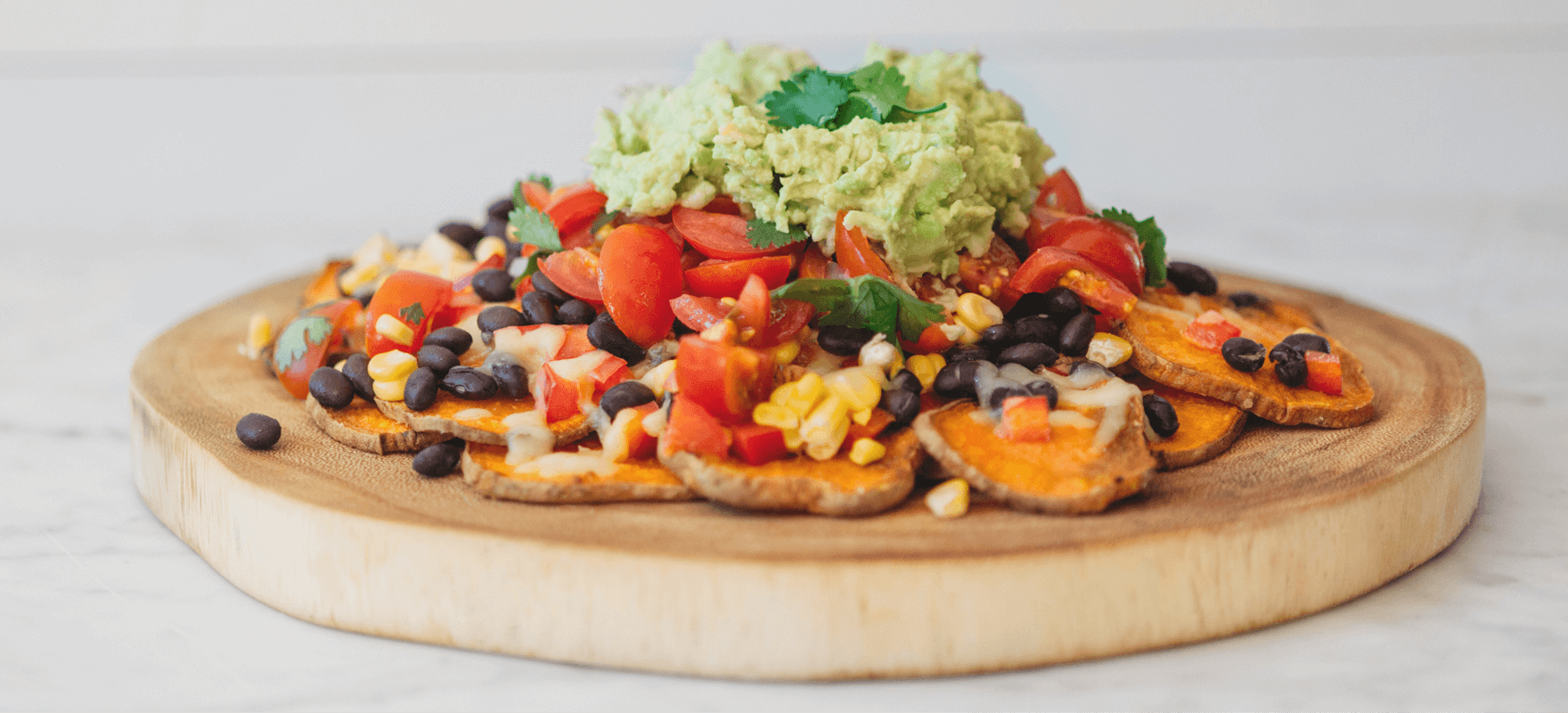
Vegetarian laksa

Spring vegetable pie
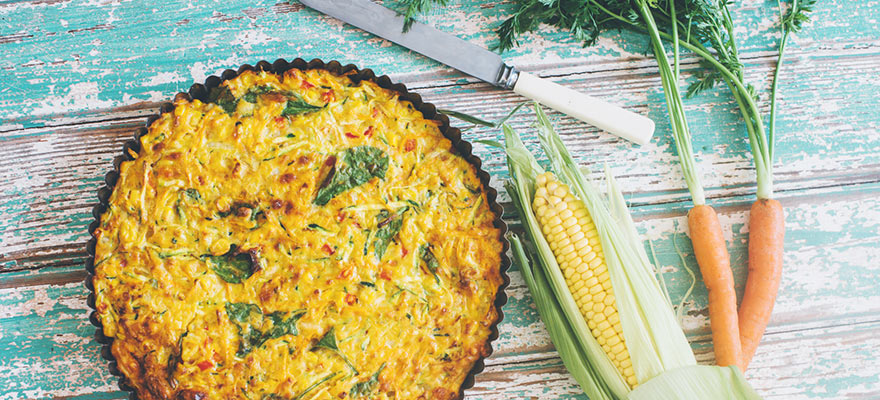
Shakshuka
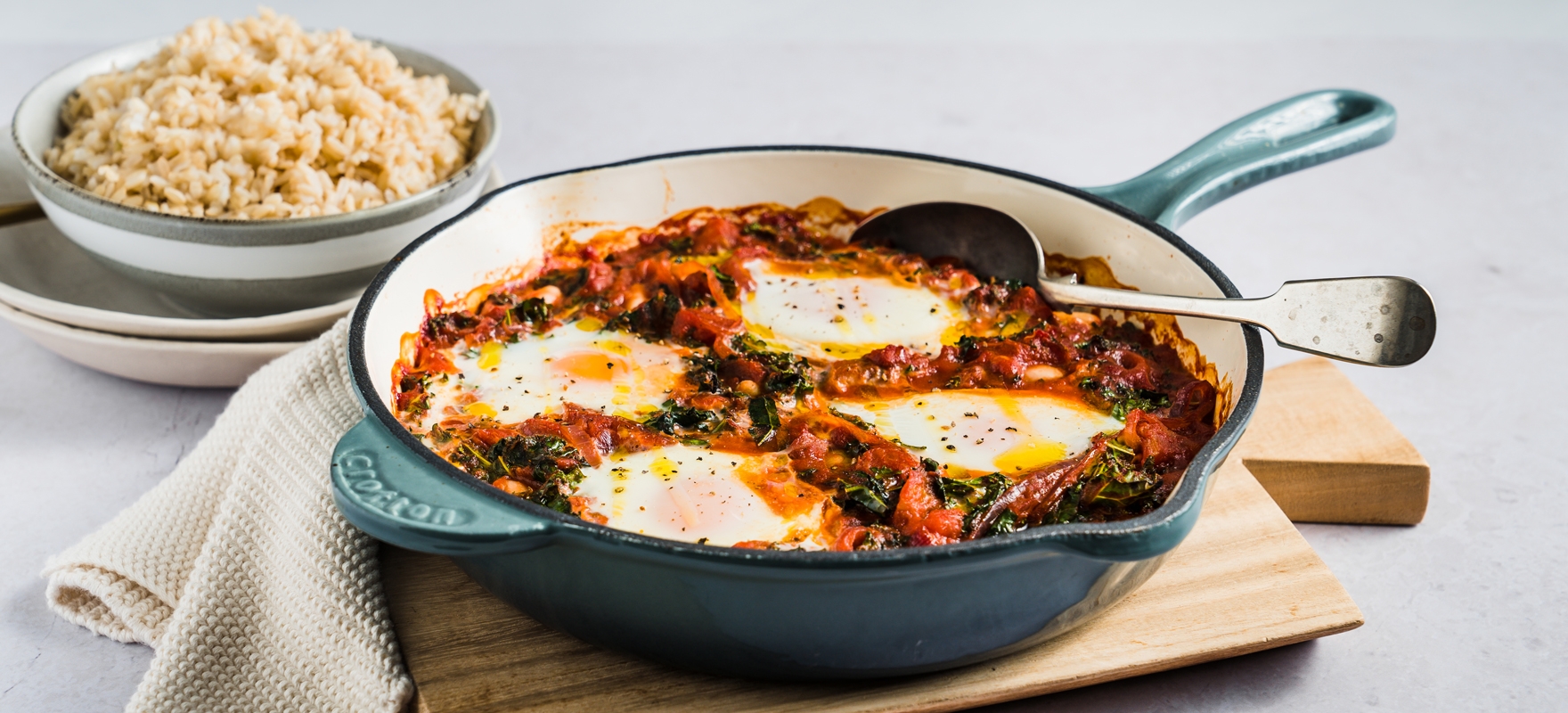
Banh Mi spring rolls
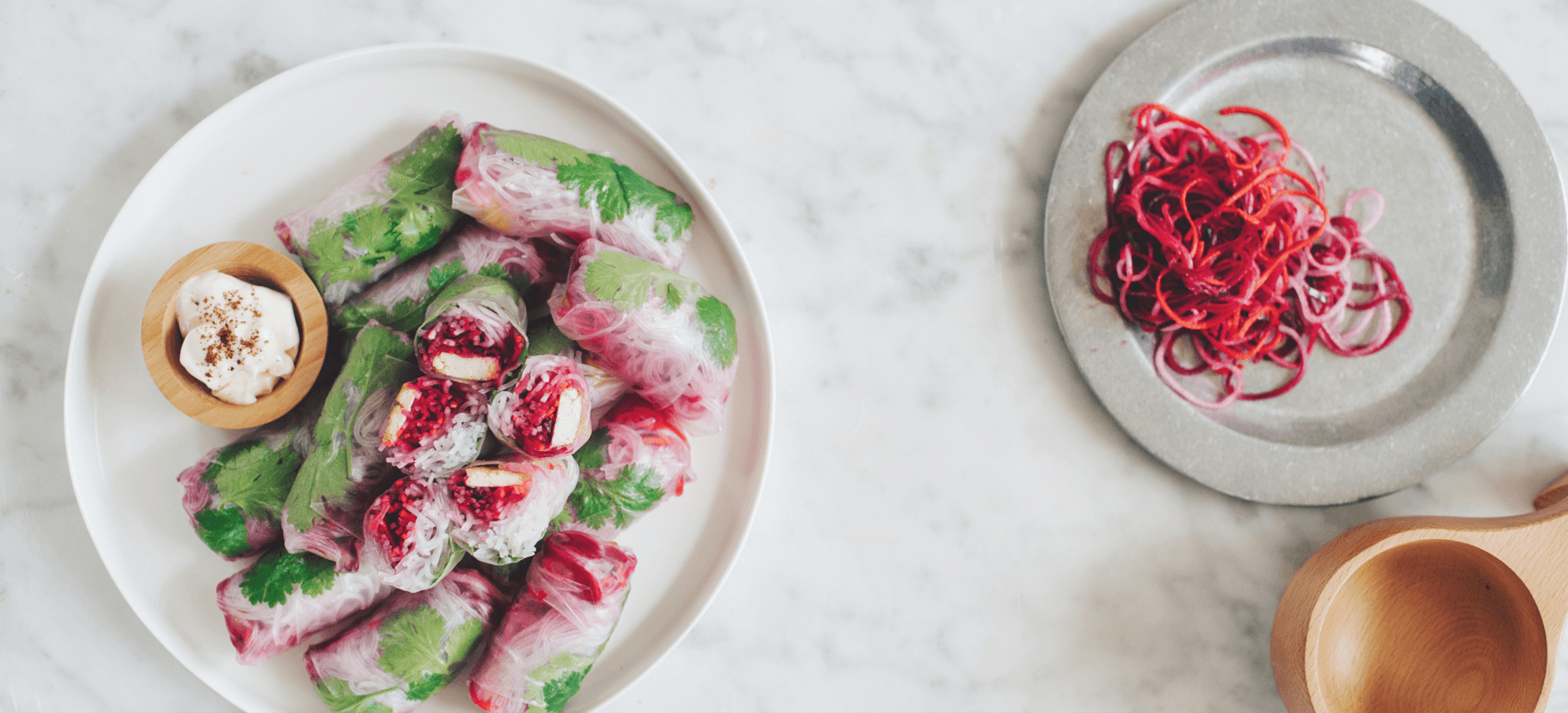
So, why not take up the 30 Plants in 7 Days Challenge? Perhaps write down all the plant foods you’re including in your weekly diet and you might be surprised how quickly they add up. Your gut will thank you for it!
More in

The latest nutrition advice, plus health and wellness tips delivered to your inbox monthly
